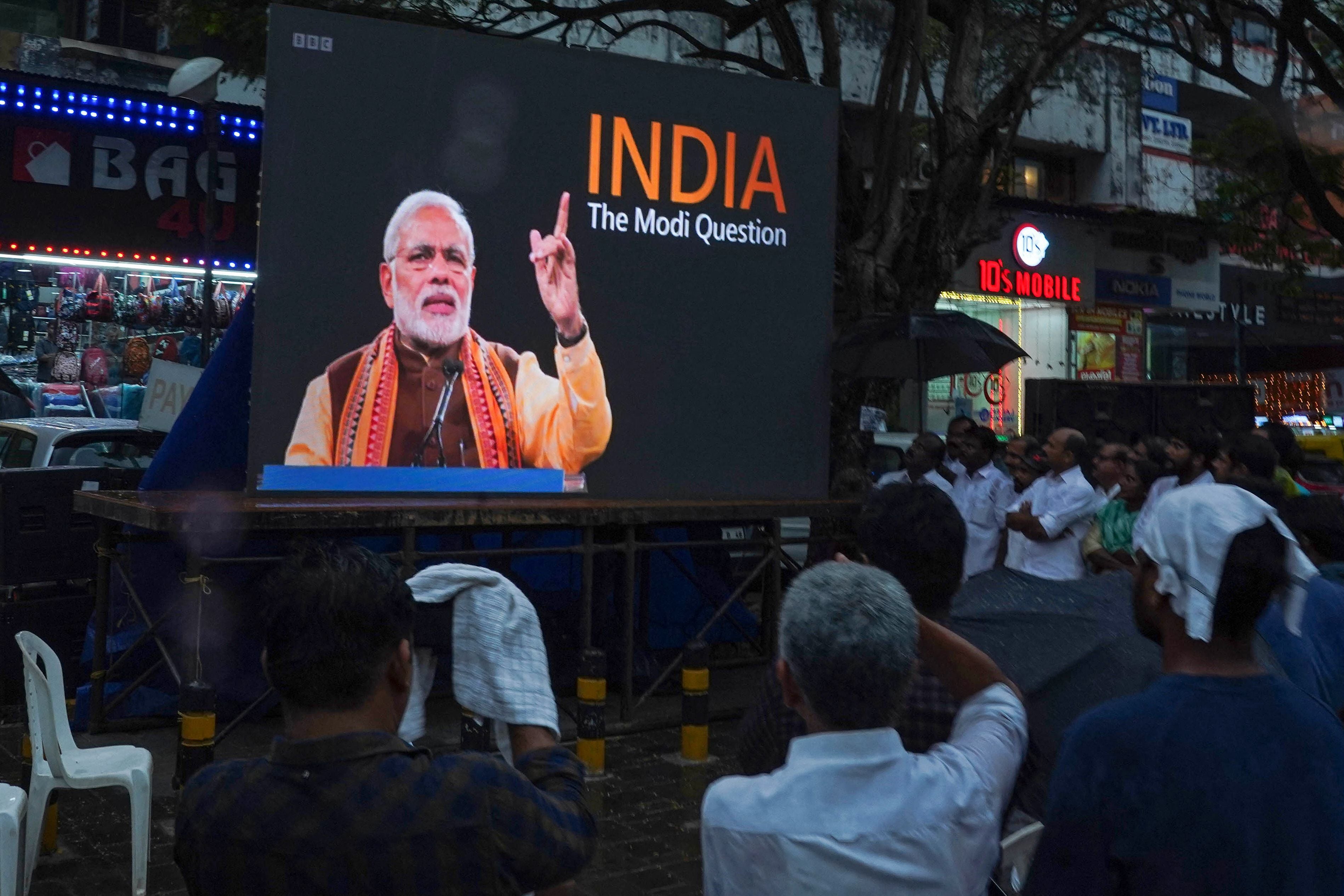Rights groups to screen BBC’s Narendra Modi documentary before his US visit
HRW says it wants the screening to serve as a reminder that the documentary is banned in India

Your support helps us to tell the story
From reproductive rights to climate change to Big Tech, The Independent is on the ground when the story is developing. Whether it's investigating the financials of Elon Musk's pro-Trump PAC or producing our latest documentary, 'The A Word', which shines a light on the American women fighting for reproductive rights, we know how important it is to parse out the facts from the messaging.
At such a critical moment in US history, we need reporters on the ground. Your donation allows us to keep sending journalists to speak to both sides of the story.
The Independent is trusted by Americans across the entire political spectrum. And unlike many other quality news outlets, we choose not to lock Americans out of our reporting and analysis with paywalls. We believe quality journalism should be available to everyone, paid for by those who can afford it.
Your support makes all the difference.Two prominent global human rights groups – Amnesty International and Human Rights Watch (HRW) – announced that they will hold a private screening in Washington DC of the BBC documentary on Narendra Modi banned in India.
Indian prime minister Modi is going on a state visit to the US, hosted by US president Joe Biden, from 21 June and will be in America till 24 June.
Just two days ahead of the visit, HRW and Amnesty will hold a private screening of the BBC documentary titled “India: the Modi Question” for audiences that include policymakers, journalists and analysts, it was reported on Tuesday.
The documentary was banned in India as the Indian government called it a “propaganda piece” which displays “bias, [a] lack of objectivity, and frankly a continuing colonial mindset” on the part of the BBC. The BBC, meanwhile, defended itself and said that it was conducted by adhering to the “highest editorial standards”.
HRW said it wanted the screening to serve as a reminder that the documentary had been banned in India, according to Reuters.
The documentary, according to the BBC, investigates tensions between Indian prime minister Narendra Modi and the country’s Muslim minority.
The documentary was released in the UK on 17 January this year and was briefly available on YouTube in India but was taken down by Indian authorities. The Indian government issued orders to both YouTube and Twitter to block content related to the documentary using emergency powers under the country’s information and technology laws.
In May this year, the Delhi High Court issued summons to the BBC while hearing a defamation suit filed by a Gujarat-based non-profit Justice on Trial.
“It is contended that the documentary makes defamatory imputations and casts slur on the reputation of the country and the judiciary and against the prime minister. Issue notice to the respondents,” the court said.
The BBC documentary showed a previously unpublished report from the UK Foreign Office that holds Mr Modi “directly responsible” for the “climate of impunity” that enabled the Gujarat riots in 2002 to take place. It claims that Mr Modi was “directly responsible” for the riots that left nearly 1000 people, mostly Muslims dead, when he was the state’s chief minister in 2002.
Mr Modi has repeatedly denied any wrongdoing. Last year India’s Supreme Court also cleared Mr Modi of any wrongdoing over the riots.
On 10 February, the Supreme Court of India dismissed a petition calling for the BBC Modi documentary to be banned. The court called the petition “entirely misconceived”, and “without merit” and disagreed with complete censorship of the documentary.
In February, the Indian tax department officials raided BBC offices in New Delhi and Mumbai. Amnesty International at the time, issued a statement saying that this was an “intimidatory act”.
In a statement, the rights group said: “The tax department’s raids, which are being presented as ‘surveys’, come less than a month after the organisation released a documentary that openly criticised Prime Minister Narendra Modi. These raids are a blatant affront to freedom of expression. The Indian authorities are clearly trying to harass and intimidate the BBC over its critical coverage of the ruling Bharatiya Janata Party.
“The overbroad powers of the Income Tax Department are repeatedly being weaponised to silence dissent” and added that “these intimidatory acts, which undermine the right to freedom of expression in India, must end now”.
Meanwhile, during his state visit, on 22 June, several thousand Indian Americans are expected to gather on the South Lawns of the White House, where Mr Modi will be welcomed by the US president, reports said.
The White House press secretary Karine Jean-Pierre, last month, defended Mr Modi’s planned visit to the US. She said Mr Biden believes “this is an important relationship that we need to continue and build on as it relates to human rights”.



Join our commenting forum
Join thought-provoking conversations, follow other Independent readers and see their replies
Comments